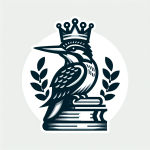Strategies for Efficient Financial Management and Budgeting in a Bookshop-Caf
Running a bookshop-caf that specializes in fiction and non-fiction nature-themed literature can be a rewarding venture for book lovers and coffee enthusiasts. However, efficient financial management and budgeting are vital aspects of ensuring the success and profitability of your business. In this article, we will explore some strategies that can help you effectively manage your finances and budget in a bookshop-caf setting.
1. Develop a Solid Business Plan
Before opening your bookshop-caf, it is essential to create a comprehensive business plan that outlines your goals, target market, revenue projections, and expenses. Your business plan should also include a detailed financial forecast that estimates your costs, revenues, and profits for the first few years of operation. Having a clear roadmap of your financial objectives will help you make informed decisions and allocate your resources effectively.
2. Separate Personal and Business Finances
It is crucial to separate your personal finances from your business finances to maintain clarity and accuracy in managing your bookshop-caf's finances. Open a separate business bank account and track all transactions related to your business separately. This will help you monitor your cash flow, expenses, and revenues more efficiently and avoid confusion during tax time.
3. Implement a Budgeting System
Setting up a budgeting system is essential for managing your bookshop-caf's finances effectively. Start by listing all your recurring expenses such as rent, utilities, inventory purchases, staff wages, and marketing costs. Allocate a budget for each expense category based on your monthly revenue projections. Regularly review and adjust your budget to ensure that you are staying within your financial limits and making necessary adjustments as needed.
4. Monitor Your Sales and Inventory
Keeping track of your sales and inventory levels is critical for efficient financial management in a bookshop-caf. Use a point-of-sale system to record your daily sales and track your inventory levels in real-time. Analyze your sales data to identify your best-selling items, optimize your inventory levels, and streamline your purchasing decisions. This will help you minimize waste, reduce stockouts, and improve your overall profitability.
5. Control Your Operating Expenses
Controlling your operating expenses is essential for maintaining a healthy bottom line in your bookshop-caf. Regularly review your overhead costs such as rent, utilities, insurance, and staff wages to identify potential areas for savings. Look for ways to reduce unnecessary expenses, negotiate better deals with suppliers, and seek out cost-effective alternatives without compromising the quality of your products and services.
6. Implement Profitable Pricing Strategies
Pricing your products and services competitively is crucial for maximizing your profitability in a bookshop-caf setting. Conduct market research to determine the optimal price points for your books, beverages, and snacks based on your target market's preferences and purchasing power. Consider offering discounts, promotions, and bundle deals to attract customers and boost your sales revenue.
7. Invest in Marketing and Promotion
Marketing and promotion play a key role in attracting customers and driving sales in your bookshop-caf. Develop a comprehensive marketing strategy that includes online and offline tactics such as social media marketing, email campaigns, loyalty programs, and community events. Allocate a budget for marketing and monitor the return on investment (ROI) of your promotional efforts to ensure that you are reaching your target audience effectively.
8. Plan for Seasonal Fluctuations
Seasonal fluctuations can significantly impact the financial performance of your bookshop-caf, especially if you specialize in nature-themed literature. Develop a contingency plan to handle fluctuations in customer demand during off-peak seasons and capitalize on peak seasons to maximize your sales revenue. Consider offering seasonal promotions, themed events, and limited-time offers to attract customers and drive sales during slow periods.
9. Seek Professional Financial Advice
If you are new to financial management or struggling to keep up with the complexities of running a bookshop-caf, consider seeking professional financial advice from a qualified accountant or financial advisor. A financial expert can help you develop a sustainable financial strategy, optimize your budgeting process, and make informed decisions to improve your profitability and financial health.
10. Stay Agile and Adapt to Change
Lastly, stay agile and adapt to change in the ever-evolving bookshop-caf industry. Keep up with market trends, customer preferences, and industry developments to stay ahead of the competition and remain relevant in the market. Continuously monitor your financial performance, track key performance indicators (KPIs), and make strategic adjustments to your business operations to ensure long-term success and sustainability.
In conclusion, efficient financial management and budgeting are essential for the success and profitability of your bookshop-caf specializing in fiction and non-fiction nature-themed literature. By developing a solid business plan, separating personal and business finances, implementing a budgeting system, monitoring sales and inventory, controlling operating expenses, pricing products competitively, investing in marketing, planning for seasonal fluctuations, seeking professional financial advice, and staying agile, you can effectively manage your finances and budget to achieve your business objectives and ensure long-term sustainability.

leave a comment